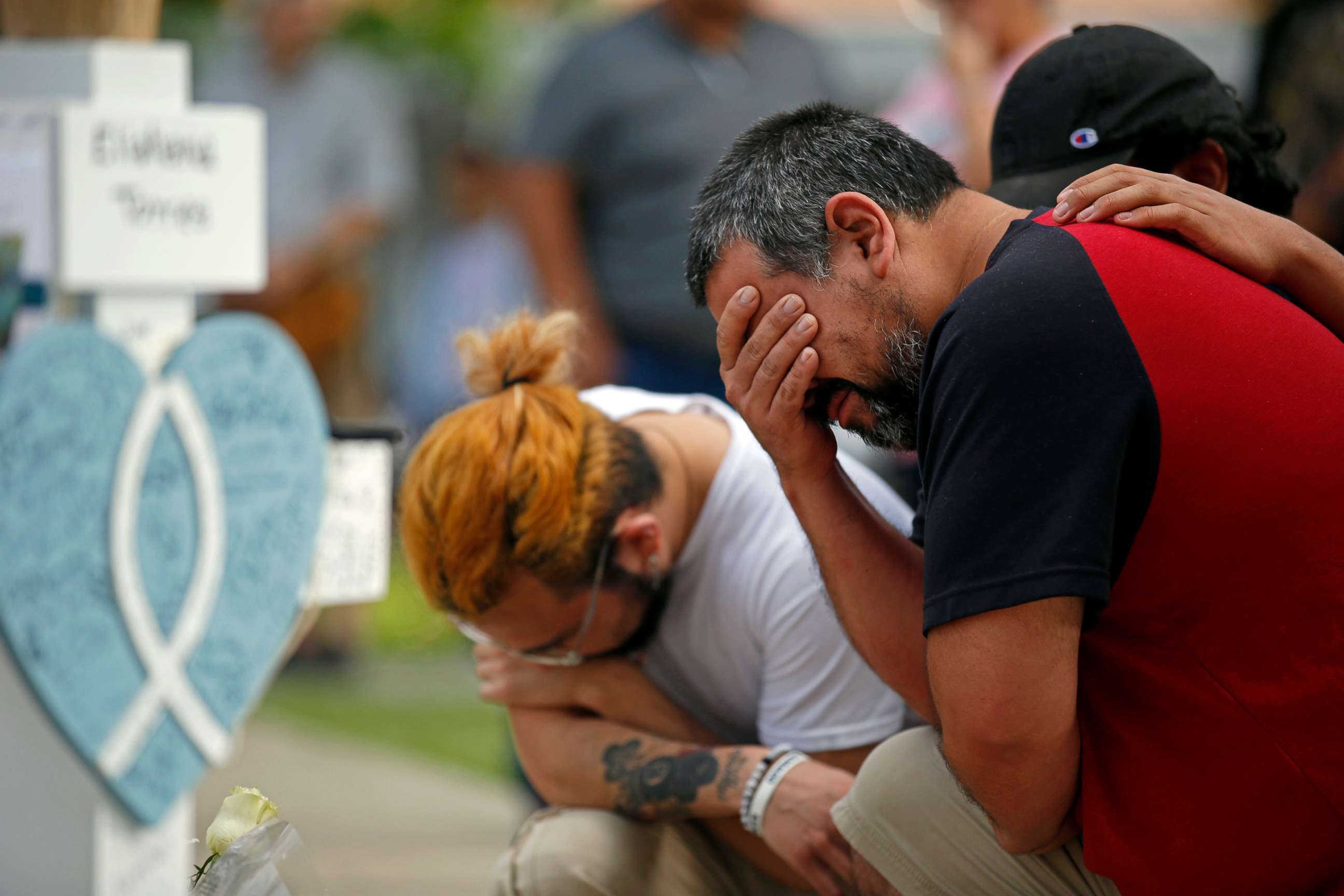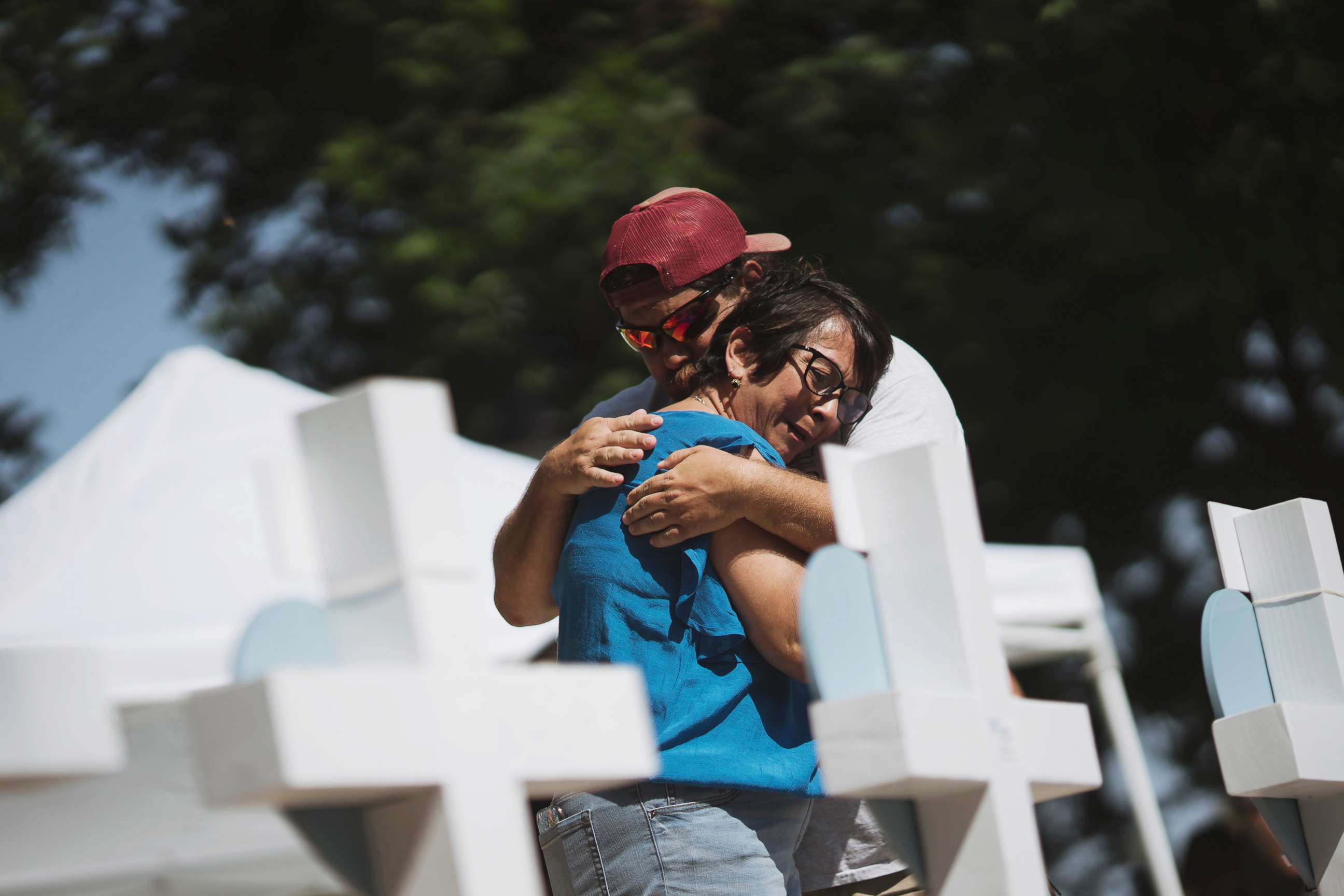For every person killed in a mass shooting, another 6 are seriously injured, study shows
Survivors face not only physical injuries, but mental and emotional ones also.
For every one person killed in a mass shooting event, a new study estimates that roughly six additional people are seriously injured.
The study, published in medical journal JAMA Open on Friday, is a dark reminder that mass public shootings have a cost beyond lives lost, including immense physical and financial burden for those who have sustained injuries and survived.
Amid the recent wave of gun violence seen in Buffalo, New York, and Uvalde, Texas, many are dealing with the immediate pain and grief. But other long-term consequences could lay ahead for those that were injured and even those treating the injured.
Doctors for America, an organization that seeks to improve affordable health care access, told ABC News in a statement that health professionals are "horrified" and "exhausted" by mass shooting events.

"We are the ones…suturing up bullet wounds from recurring mass shootings [and] caring for traumatized communities after the cameras leave,” the statement reads.
Far more people suffer from firearm related injuries than deaths, according to the Center for Disease Control data and the Gun Violence Archive.
Gun violence resulted in 165,335 non-fatal injuries from 2016 to 2021, according to another report from April in JAMA Open.
The commonly reported injuries in this study include, but are not limited to, fractures, traumatic brain injuries and non-fatal gunshot wounds.
“We have seen where people are shot in their abdomen…and then they end up having to have bowel resections and sometimes ostomies…We see people who have vascular injuries that need a repair of their vessels. They may have lung injury or a…collapsed lung,” said Dr. Joseph Sakran, the director of emergency general surgery at Johns Hopkins University Hospital, who says he is a personal victim of gun violence.
Surgery is needed for up to one in four gun violence victims with non-fatal injuries. Additionally, 44% of those victims leave hospitals with functional disabilities and over 13% require long-term care.
Compounding the issue are the large medical bills, estimated to be nearly $65,000 per injured person. Collectively, CDC data shows that firearm violence costs tens of billions of dollars each year due to medical and lost productivity costs.
“The economic toll, simply the hospital charges… we found it's probably $2.8 billion per year. When you look at societal costs…there are estimates that have that at $280 billion per year,” added Sakran.
Experts say that violence from mass shootings claims many victims beyond the casualties. It can take the physical well-being away from someone for the rest of their life. It can cause emotional and mental trauma. It haunts families and communities for years after an incident.

In 2019, a shooting in Dayton, Ohio, outside a bar led to 9 deaths and 27 people injured.
Ashley Badertscher was in the bar when the shooting happened.
“We hid in a supply closet not knowing where the rest of our friends were, where the gunman was, or how long to hide for," Badertscher told ABC News. "All we heard were people running up and down the stairs frantically screaming.”
Dr. Rodrigo Gerardo, a resident surgeon who was on call that night at Miami Valley Hospital in Dayton, described the night of the shooting as "organized chaos."
"I bounced from one trauma bay to the next, helping control bleeding or resuscitate patients. One moment I was walking around the department handing out tourniquets like they were bottles of water," Gerardo told ABC News.
Many of those who survived not only have physical disabilities, but harbor mental and emotional injuries, even years later.
“I still become weepy and furious every time I see this happen again," Badertscher said. "I don’t understand the need for civilians to have access to weapons of such magnitude. Not all humans should have access to a firearm.”
Dr. Rebecca Fujimura is a Family Medicine resident physician at MedStar Health/ Georgetown-Washington Hospital Center and Dr. Priya Jaisinghani is an Internal Medicine board certified physician and Endocrinology fellow at New York Presbyterian-Weill Cornell. Both are contributors to the ABC News Medical Unit.




